
Want to expand your knowledge, gain new skills, and earn class credits you need from the comfort of your home? From European goddesses and witches, fanfiction, and earthquakes to global careers, Spanish language for business, and journeys through East Asian art history, our online course listing for Fall 2020 offers something for everyone. Get started by checking out these 11 online College classes you can take during the fall semester!
HIST 320 History – From Goddesses to Witches: Premodern Europe
Ideas and attitudes about women — from their roles in society to their very nature — have dramatically shifted throughout history. Gain an in-depth understanding of women’s spirituality, goddess-worship, symbols of women, and women’s roles in religious societies within Europe from 30,000 B.C.E. to the 16th century Protestant Reformation by taking HIST 320.

This course examines the social, cultural, and political contexts of women’s spirituality and their relations to gender relations in Europe from about 30,000 B.C.E. to the 16th century Protestant Reformation. Lectures move both chronologically and topically, covering such subjects as goddess-worshiping cultures, women’s roles in Christian and Jewish societies, symbols of women, and male attitudes toward women. Students will be able to participate in weekly discussions of primary and secondary source readings about women. (Same as WGSS 320.) Satisfies: Goal 1 Outcome 1 (GE11), Goal 3 Arts and Humanities (GE3H), H Humanities (H), HT Historical Studies PC (HT)
ATMO 220 Atmospheric Science – Unusual Weather
Curious about the science behind unusual weather phenomena? Explore the underlying principles at work in extreme weather events like tornadoes, hurricanes, and blizzards, as well as the effects of air pollution and human alteration of the atmosphere, in ATMO 220.
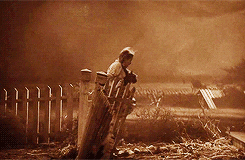
An introductory lecture course which surveys the general principles and techniques of atmospheric science and illustrates their application through discussions of natural but unusual weather phenomena such as blizzards, hurricanes, tornadoes, and chinooks, of the effects of air pollution on weather, and of intentional human alteration of the atmosphere. Satisfies: Goal 1 Outcome 1 (GE11), Goal 3 Natural Sciences (GE3N), N Natural Science (N), NE Earth Sciences PC (NE)
SPAN 448 Spanish – Spanish Language & Culture for Business
In today’s globalized world, it’s more important than ever to have a grasp on the relationship between business and language, communication skills, and social and cultural context. In SPAN 448, non-native Spanish speakers will develop analytical and communication skills for international business and professional life.

Cultural studies approach to contemporary Spanish American societies for students with an interest in business. Explores how individuals from Spanish American countries negotiate their place in a new cultural context, and how different groups in Spanish America perceive business (negocios). Readings include selections from literature, history, journalism, social analysis, and popular culture. Exercises help non-native speakers develop analytical skills as well as vocabulary and communication skills related to international business and professional life. Conducted in Spanish. Prerequisite: SPAN 323, or SPAN 324 and SPAN 328, or SPAN 325, or consent of instructor. A grade of B- or higher in SPAN 323, 324 or 325 is strongly recommended for students enrolling in this course. Satisfies: Foreign Language Proficiency (FP), H Humanities (H)
ENGL 329 English – Topics in Forms and Genres: Fanfiction
Are you a fanfiction fanatic? Whether you’re a fanfic newcomer or totally unfamiliar with it, taking ENGL 329 will expand your knowledge of the genre that’s “taking over the world” by examining questions like: What is fanfiction in the first place? What does it do? And who is it for?

An introductory study of a selected topic focused on a literary or rhetorical form or genre (e.g., Lyric Poetry, Captivity Narratives, Genre Theory). May be repeated for credit as the topic changes. Prerequisite: Prior completion of the KU Core Written Communication requirement. Recommended: Prior completion of one 200-level English course. Satisfies: H Humanities (H)
GIST 585 Global & International Studies – Transnational Terrorism
Transnational terrorism has shaped our lives and everyday activities in ways that are largely second nature now — screenings at airports and concert venues, video surveillance on neighborhood streets, and ramped up physical security anywhere masses of people gather. But terrorism, and efforts to prevent terrorism, are complex, ever-evolving issues. In GIST 585, you’ll explore the evolution of terrorism from the French Revolution to modern day, its causes and consequences, and scholarly conversations around terrorism.

The course provides a study of the patterns of transnational terrorism. First, it introduces students to the analytical study of terrorism. The course traces the evolution of terrorism, from the French Revolution to the modern day era. It also covers how scholarship defines, conceptualizes, and measures terrorism. The second goal is to introduce students to key scholarly debates within the literature. Some of the example questions we ask are: are democracies more vulnerable to terrorism? Does globalization render states open to being attacked by transnational actors? Is torture warranted as an effective counterterrorism tactic? The readings draw on empirical scholarship on the causes and consequences of transnational terrorism. (Same as POLS 582.) Prerequisite: Sophomore level or consent of instructor. Satisfies: S Social Science (S)
GEOL 171 Geology – Earthquakes & Natural Disasters
Are you fascinated by nature’s most awe-inspiring, terrifying, and spectacular moments? In GEOL 171, you’ll gain a new appreciation for the processes and impacts of catastrophic natural events including volcanic eruptions, meteorite impacts, and earthquakes.

Addresses the subject of natural disasters with concentration on earthquake effects and their mitigation. Briefly treats volcanic eruptions, tidal waves, floods, global warming, severe weather, and catastrophic meteorite impacts from the perspective of geological and human significance. Provides a basic background into earth-science processes. Satisfies: Goal 3 Natural Sciences (GE3N), N Natural Science (N), NE Earth Sciences PC (NE)
AAAS 106 African & African-American Studies – The Black Experience in the Americas
In AAAS 106, you’ll trace the history of African peoples in the U.S.A. and Caribbean and Latin America. By studying works of literature and music, social and political development, economics, and demography, you’ll make new discoveries and gain insight into the black experience in the Americas up to and during the nineteenth century.
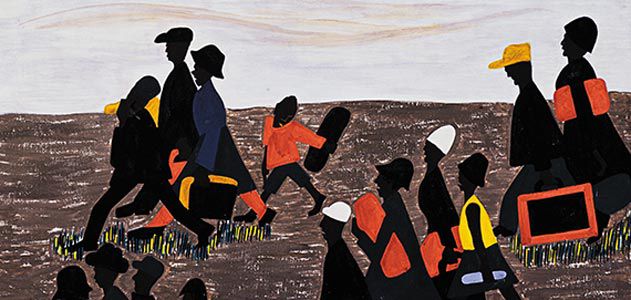
An interdisciplinary study of the history of the African peoples of the New World, relating their cultures and institutions to the African background and to their peculiar New World experiences up to and including the nineteenth century. While the main emphasis is on the U.S.A., attention is also paid to the Caribbean and Latin America. Approaches include demography, economics, social and political developments, literature, and music. (Same as HIST 109.) Satisfies: Goal 4 Outcome 1 (AE41), H Humanities (H), HT Historical Studies PC (HT), World Culture (W)
HA 166 History of Art – The Visual Arts of East Asia
Take a journey through East Asia from your own home by exploring the region’s artistic works. In HA 166, you’ll look at works of art from China, Korea, and Japan, study their significance and purposes, and learn to identity a variety of art styles. You’ll also build your artistic vocabulary by analyzing, writing about, and discussing art in East Asian cultures.

This course examines major forms of artistic expression in China, Korea, and Japan. Discussions introduce basic art concepts, the themes and purposes of art, and different art styles in East Asia from ancient times to the present. Students develop critical skills through analyzing, writing about, and talking about art and East Asian cultures. Students also learn about important museums in North America and Asia. No prior knowledge of art history or East Asia expected. Not open to students with credit in HA 165. Satisfies: Goal 4 Outcome 2 (AE42), Goal 3 Arts and Humanities (GE3H), World Culture (W)
ANTH 484 Anthropology – Magic, Science, and Religion
It’d be difficult to overstate the importance of religious belief in shaping the philosophies, cultures, and histories of societies across the globe. In ANTH 484, you’ll focus on religion and systems of value and belief in non-Western cultures. Through comparative study, you’ll expand your knowledge of the similarities, differences, and influences of religious beliefs across cultures.
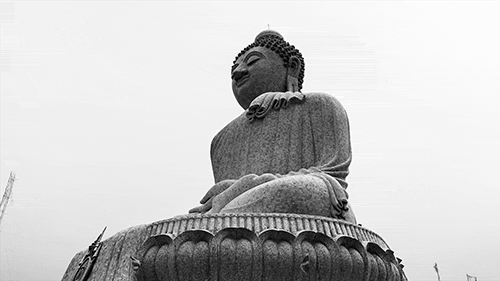
A comparative study of religion and systems of value and belief in non-Western cultures. Satisfies: Goal 4 Outcome 2 (AE42), Goal 3 Social Sciences (GE3S), NW Non-Western Culture (NW), S Social Science (S), World Culture (W)
LA&S 485 Liberal Arts & Sciences – Global Career Management
If you’re considering a career that requires cross-cultural communication and a solid knowledge of the global economy — which applies to positions in just about every corner of today’s business world— LA&S 485 is the class for you! In this course, you’ll build new communication and analytical skills that will help give you a competitive edge in today’s global job market.
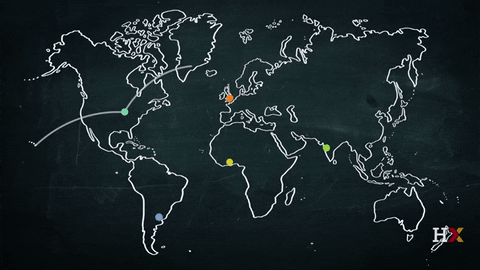
This global career development course studies the theories of cross-cultural communication and analyzes the global economy to help students apply these concepts to their own lifelong career management. Furthermore, the course builds upon the international experiences students are having at KU and also allows any student to gain lifelong knowledge and skills to be successful in a global job search or career transition, by assisting them to articulate their skills and value through a cross-cultural perspective to potential employers. Prerequisite: Students must be sophomore standing or above. Satisfies: BGS Career Course (BGSC), U Undesignated elective (U)
PSYC 465 Psychology – Stereotypes & Prejudice Across Cultures
The destructive power of stereotypes and prejudice — whether directed toward groups of people for their gender, racial, or cultural identities, class or economic status, or any other factors — is evident through the study of societies around the world and their histories. But where do these beliefs come from? Why do people hold them, and what leads people to revise their attitudes? In PSYC 465, you’ll examine stereotypes and prejudice across cultures through a psychological lens.
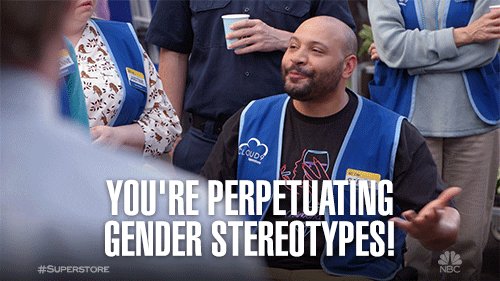
This course covers a variety of theoretical views concerning the origins of stereotypes and the factors that maintain them, as well as how and when the revision of such beliefs take place. Analysis of various stereotypes (including gender and race) and the experience of prejudice across a variety of cultural contexts is examined. Many difficult social issues are discussed in depth. Prerequisite: PSYC 360 or PSYC 361; or consent of instructor. Satisfies: S Social Science (S)
For more information, check out KU’s schedule of classes. Ready to discuss options? College of Liberal Arts & Sciences majors can schedule an appointment with their advisors at http://collegeadvising.ku.edu/.